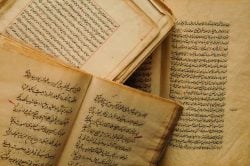Lebanon Takes the Screen: 5 Films Competing at Red Sea Film Festival
The Red Sea International Film Festival (RSIFF 2025) is back for its fifth edition from December 4–13, transforming Jeddah’s historic Al-Balad into a global celebration of cinema. And this year, Lebanon’s voice is stronger than ever.
Five Lebanese films have been officially selected, each offering a deeply personal reflection on war, memory, and other themes that remain all too familiar to the nation.
Jeem 1983, by Jorj Abou Mhaya
This film looks at the Lebanese Civil War through the imagination of a young boy who refuses to surrender his hope. His inner superhero becomes a symbol of resistance as Beirut crumbles around him.
A Sad and Beautiful World, by Cyril Aris
This film follows two people bound by childhood tragedy and reunited by destiny. Their love story becomes a reminder that Beirut is both a source of heartbreak and a place where magic still finds its way in.
What If They Bomb Here Tonight?, by Samir Syriani
Captures the tension of a single sleepless night as a couple debates whether to stay or flee, a scenario that strikes painfully close to home for many Lebanese families.
The Finale, by Rodolphe Chedid
Shifts to a quiet village where an elderly couple revisits their shared memories after decades of separation from their children. It’s a tender, cinematic look at love in its purest, most enduring form.
She’s Swimming, by Liliane Rahal
Offers a poetic exploration of grief as a filmmaker and a mourning mother seek closure after a tragic plane crash.
Other films from the region
The festival isn’t just about Lebanese cinema. Powerful films from across the Levant and beyond are also making waves. Palestinian entries like Palestine 1936, All That’s Left of You, and Coyotes explore personal and historical struggles, while Jordanian films Sink and Cleanse the Streets delve into family bonds and resilience. Internationally acclaimed works, including Tunisian director Kaouther Ben Hania’s The Voice of Hind Rajab, also make their debut, highlighting the human stories behind conflict and loss. Together, these films paint a vivid picture of life, hope, and endurance in the region.
Lebanese cinema has long been a sanctuary for both expression and healing. At RSIFF 2025, our filmmakers continue to prove that the stories of this country deserve to be seen, heard, and remembered.





